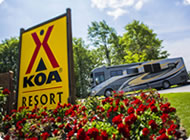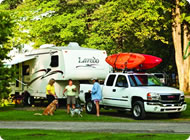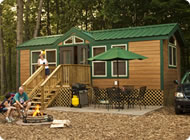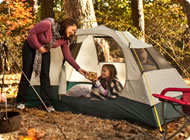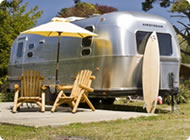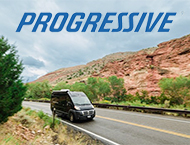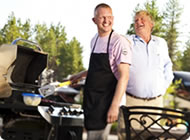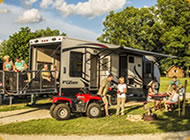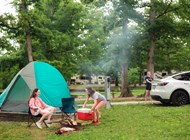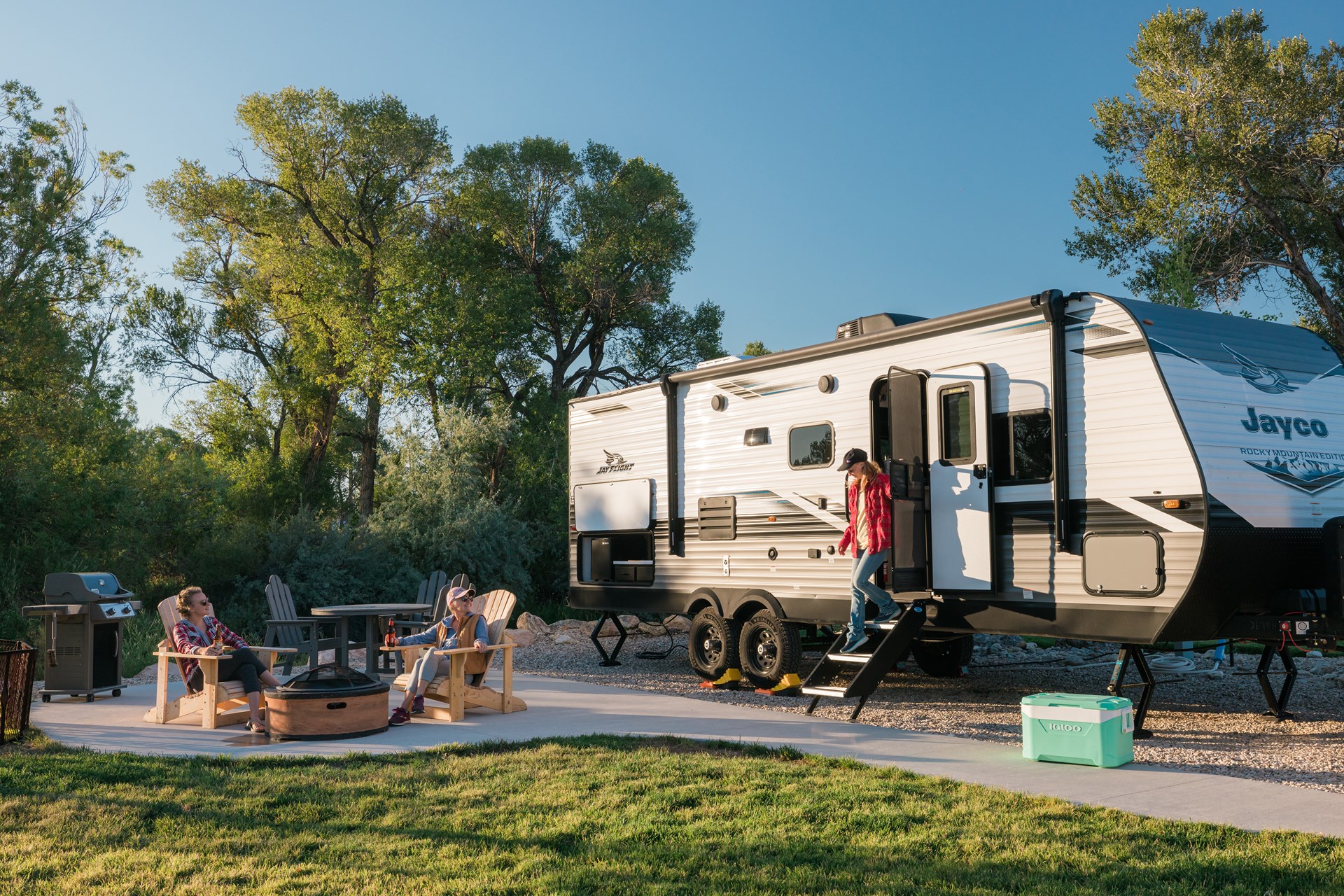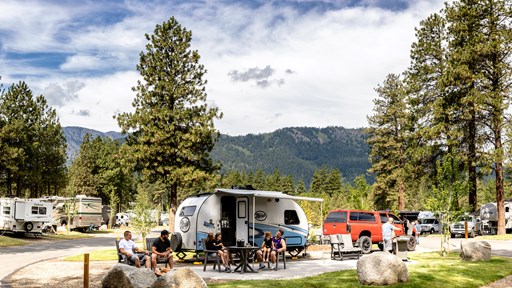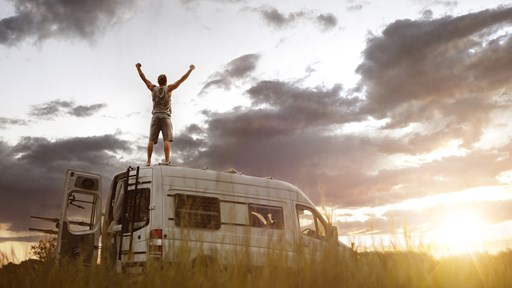For RV newbies, packing up your first mobile home adventure can be a bit daunting. Threading the needle between bringing along the comforts of home, while living minimally, can be a tricky balance, but it’s one that’s totally achievable and realistic, no matter if you’re embarking on a weekend road trip or living in it for years. The natural constraints of an RV necessitates extra planning when it comes to packing — what to bring, what not to bring, and everything in between. To ensure that you’re well-stocked, comfortable, and traveling smartly, follow these handy tips for RV packing 101.
Packing Your RV? Here’s the RV Packing Essentials You Need to Know
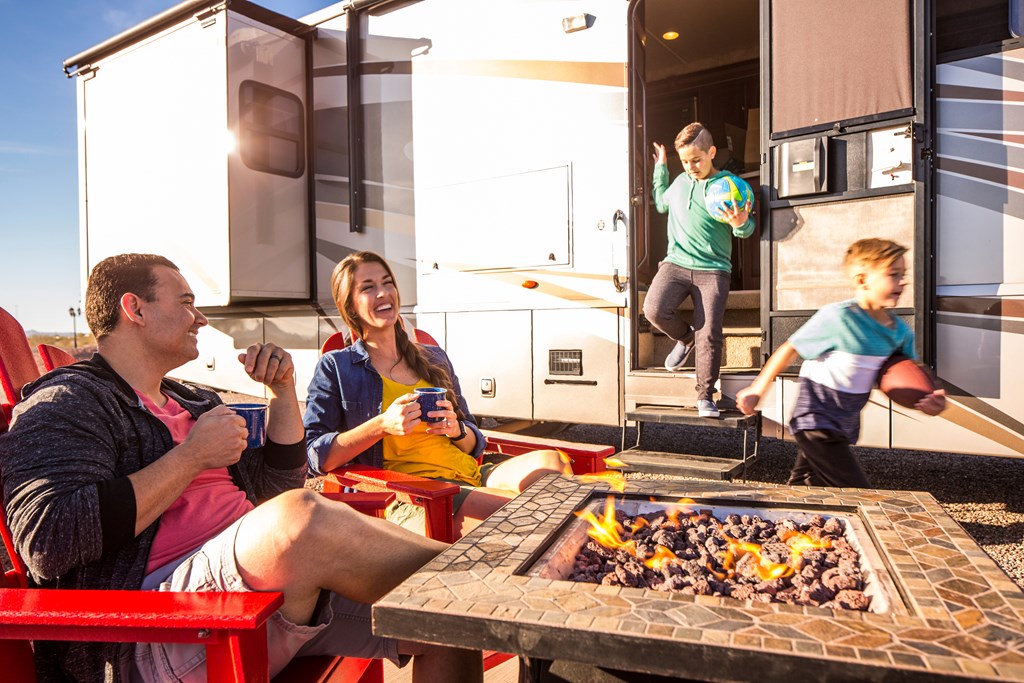
1. Keep it to the Essentials
Unless you’ve been sharing a studio apartment with several roommates, packing for an RV requires some significant downsizing and minimalism. More so now than ever, you’ll want to hone in on the bare necessities, in order to not overstuff your rig and weigh it down with extraneous equipment you won’t need as much as you might think you will. For example, a spatula and beach towels might be good ideas, but a paddle board or mountain bike might be a bit extra. Depending on the length of the trip you’re taking, you’ll want to map it all out in advance and try and determine what your adventure will entail, what items you think you’ll need, what you’ll want to do, and what you’ll have time for. Bring the equipment, clothing, and gear you’ll need, and try and leave the rest behind. Worst case scenario, if you find yourself needing a gadget you left behind, in most cases you’ll be able to snag a replacement somewhere along your route. It helps to break down your RV by section — i.e. determining what things you’ll need for the bathroom, the kitchen, the bed, and your outdoor space. This’ll help you remember patio chairs, toilet paper, pillow cases, and other vital sundries.
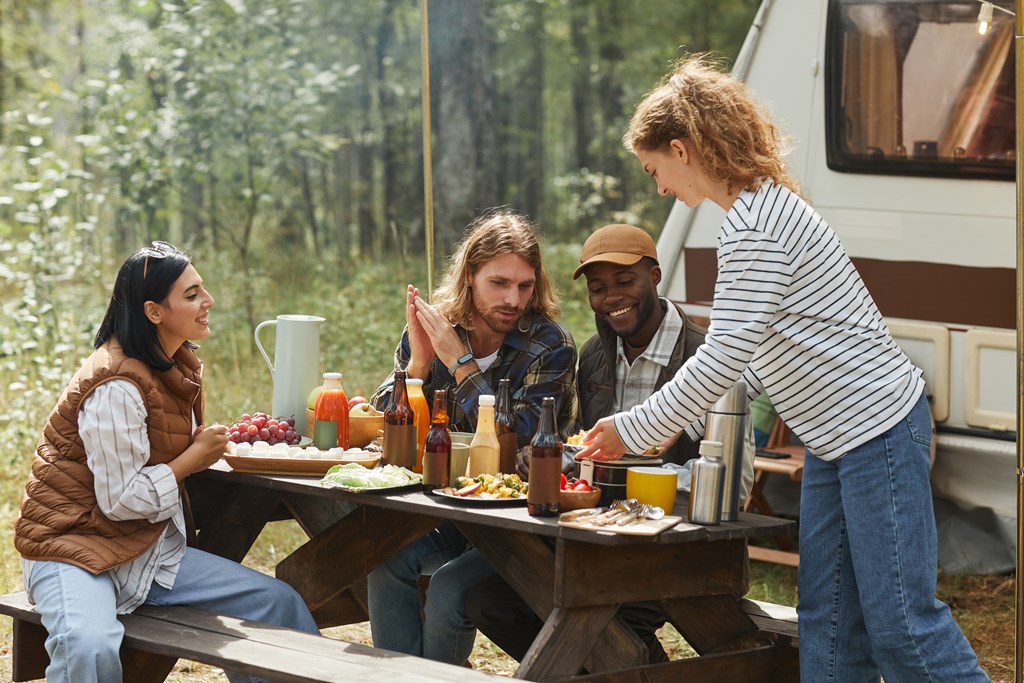
2. Bring the Right Food (and Dine Out Responsibly)
As charming and nostalgic as roadside diners and fast-food drive-thrus may seem at first, trust that they get old — and expensive — quick. When traveling in an RV, food is a key part of the equation that has a ripple effect on budget (and waistline), which is why it behooves you to plan and pack accordingly. In order to cut down on restaurant and grocery expenses along the way, pre-pack as much food as you think you’ll need or want, and you should prioritize items that aren’t too bulky or heavy. This probably isn’t the time for pot roast or beef Wellington. Try and pack lighter, smaller snacks and ingredients that emphasize nutrition and are easy to store in cabinets and refrigerators. It’s absolutely fine to splurge now and again, and marshmallows are an obvious requisite, but striking that balance is key.
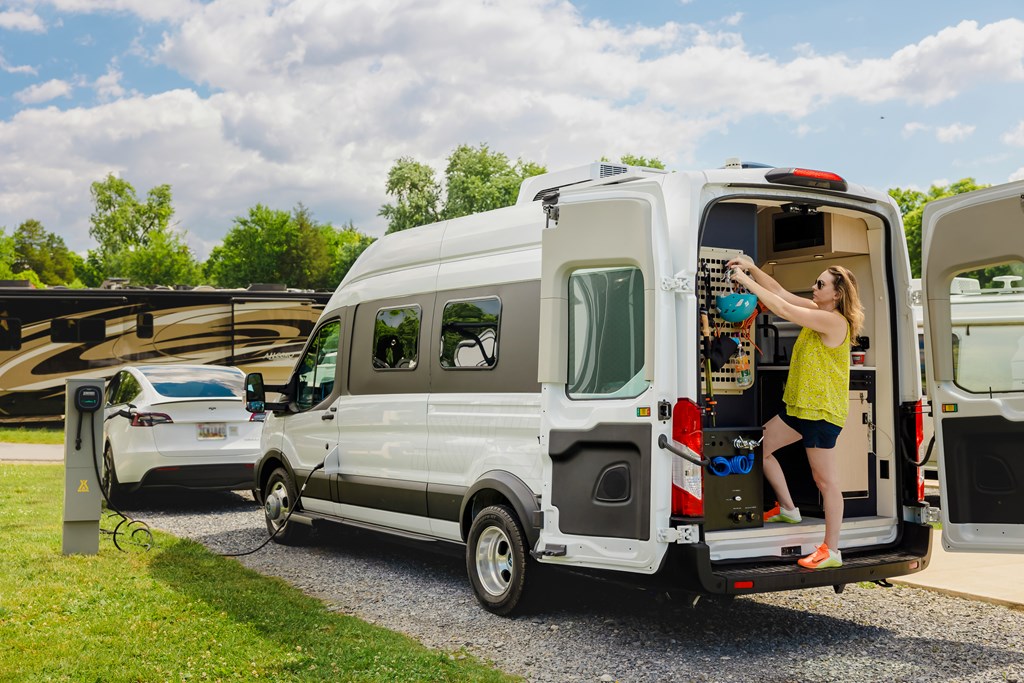
3. Keep Things Lightweight
Similar to food, the focus on lightweight items is a theme that should permeate through all aspects of RV packing. It’s true of clothes, packing more lightweight gear that’s easily foldable and storable, and it’s true of gear and equipment. Heavier items are inevitable, but make sure there’s a balance and things are properly packed away. For instance, don’t unevenly organize all your heavy equipment in one section of the RV, and opt for lighter things like reusable plastics over metal. A lightweight approach will make it easier to move around your RV and organize (and re-organize), but it’ll also just make the overall driving experience that much smoother too.
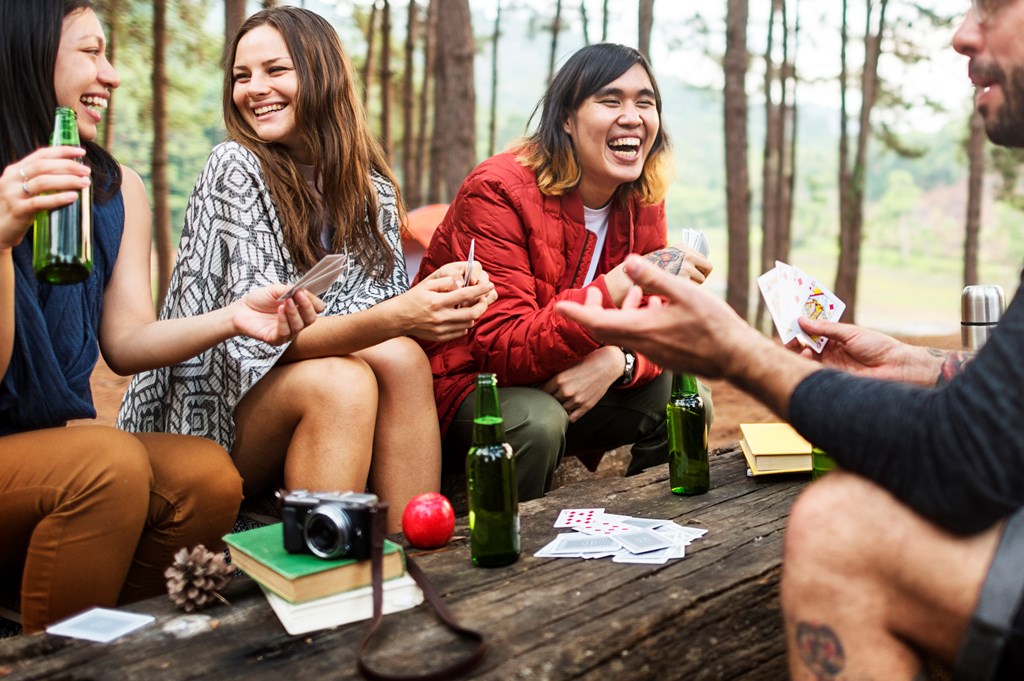
4. Pack Some Fun
Not all essentials involve gear and equipment. One element that’s just as important is entertainment. A huge part of the RV experience, entertainment in the great outdoors comes in all manner of shapes and styles, from board games and books to movies and cards. Fortunately, all of these things come in convenient sizes, so you don’t necessarily have to bring the over-sized anniversary edition of Risk, allowing you to tote along a variety of entertainment options without overstuffing your shelves. Another pro tip here is to opt for paperback books over hardcover.
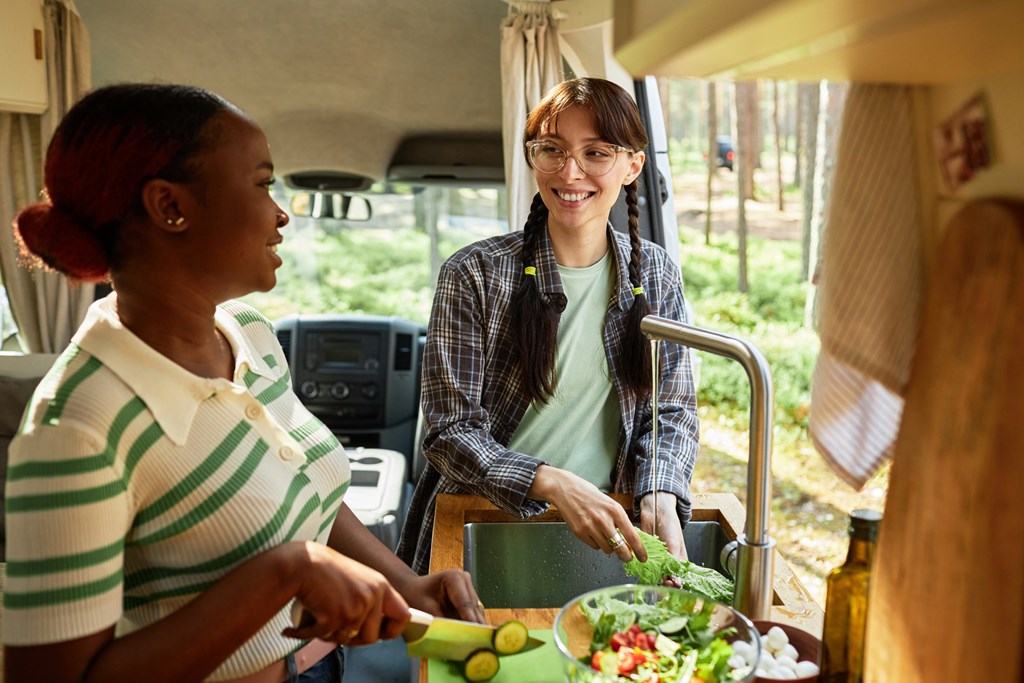
5. Minimize Fragile Items
Things can get unpredictable — and unpredictably bumpy — out on the road, so you’ll want to pack items that won’t be easily broken along the way. With so much potential rattling, it can be damaging to glass items especially, which is yet another reason to look for cups and plates that are plastic or silicone or some other material that doesn’t shatter. It doubly helps that these materials also skew more lightweight to boot. If and when you need to bring something fragile, like a coffee-maker for instance, ensure that you’re properly securing it in place so that it doesn’t jolt around in motion.
 Born and raised in New Hampshire, Matt Kirouac grew up with a love for camping and the outdoors. Though he’s lived in Chicago since 2006, he’s always on the lookout for new adventures. He writes about travel and food for outlets like TripExpert, Money Inc, Upventur, DiningOut, Food Fanatics magazine, Plate Magazine and Zagat, and he currently serves as Chicago editor for What Should We Do?! He’s the author of The Hunt Guides: Chicago (2016) and Unique Eats & Eateries of Chicago (2017).
Born and raised in New Hampshire, Matt Kirouac grew up with a love for camping and the outdoors. Though he’s lived in Chicago since 2006, he’s always on the lookout for new adventures. He writes about travel and food for outlets like TripExpert, Money Inc, Upventur, DiningOut, Food Fanatics magazine, Plate Magazine and Zagat, and he currently serves as Chicago editor for What Should We Do?! He’s the author of The Hunt Guides: Chicago (2016) and Unique Eats & Eateries of Chicago (2017).







